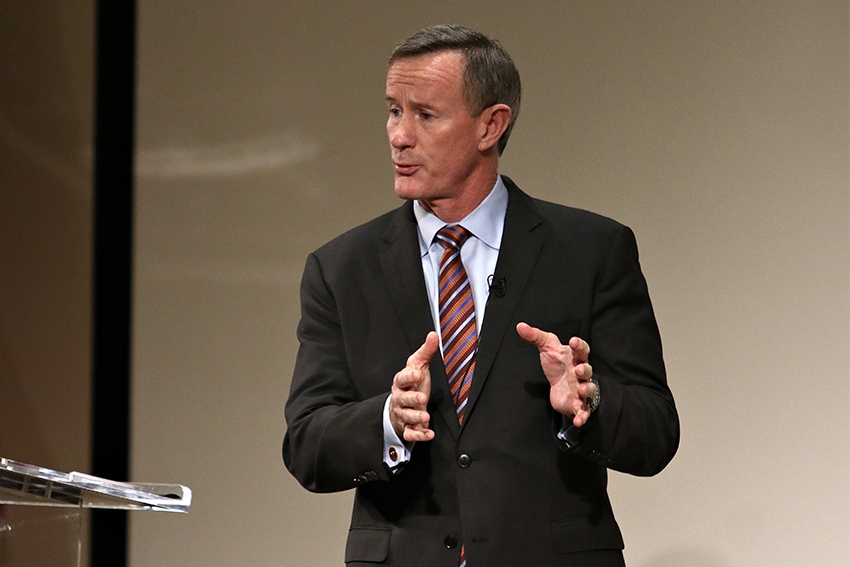Wednesday saw plans fall through to expand the UT system to include a Houston campus as Chancellor McRaven officially canceled them. Such an expansion would have finally brought a full UT sanctioned undergraduate research institution into Texas’ largest city and have brought competition to the University of Houston. But it’s the fallout of the bungled plan that illustrates the true loss — a harder road has been paved to expanding our system.
Plans to expand the UT System to include a Houston campus were announced by Chancellor McRaven last year. Since then he acquired 307 acres of land in Houston southwest of the Astrodome for the price of $215 million to fit the project and worked on building the idea up before ensuring he had solid ground to begin with.
At the announcement of these plans, McRaven faced wide criticism and disapproval from both the University of Houston and members of the Texas Legislature. The University of Houston saw the plans as unwanted competition that posed a threat to their institution. Meanwhile members of the Texas Legislature criticized the purchase of the land without consulting them first.
This misstep with the legislature was the crucial blow, knocking an idea built on shoddy foundation out before it could even begin.
Yet McRaven never mentioned it when discussing the cancellation. Instead he cited concerns that the expansion project to Houston would overshadow the work being done at the other 14 UT campuses across the state. A vague enough answer to conceal the fact that he jumped the gun on a massive project that would’ve greatly helped expand the prestige and reach of UT.
Not a full week after McRaven’s cancellation announcement comes the proposal of House Bill 1737. This bill would enforce stricter requirements on Texas public universities and colleges when purchasing land outside the immediate area surrounding their main campus. If enacted, it would make it harder for UT and other public universities in Texas to expand across the state.
The bill directly politicizes the expansion of public universities, and could affect not only a potential future UT-Houston campus, but any expansions on any of UT’s other 14 campuses. Both the timing of the bill and the sponsor of the bill, state Rep. Carol Alvarado, D-Houston, make it clear that it’s a direct response to McRaven’s failed attempts at constructing a UT Houston campus.
But more than that, it’s a response to the notion of competition between public universities being brought to Houston. It’s a protective measure that keeps universities safe, while hurting students who could benefit from more diversity in college choices. Competition between universities isn’t a bad thing, and if allowed would lead to both schools constantly working to better themselves.
This whole ordeal has cost UT greatly, but it will ultimately cost Texas students more. McRaven’s jumping the gun on expanding to include a Houston branch of the UT system without having the forethought to consult with the Texas Legislature have made the process of expanding our system much harder than it needs to be. This lasting cost will affect all of our existing branch schools along with any future ones, and will take away the opportunity for competition between universities that could ultimately better them.
Berdanier is a philosophy junior from Boulder, Colorado. Follow her on Twitter @eberdanier.





















